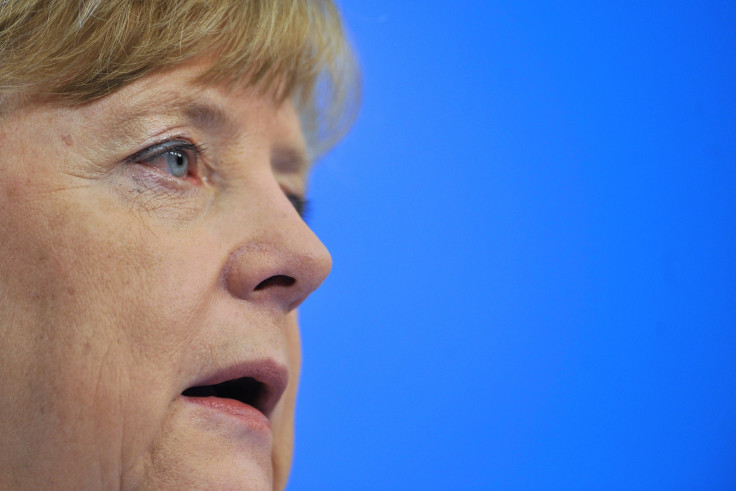Merkel Comforts Crying Refugee Video: German Chancellor Explains Why Girl Can't Stay In Germany

In a video that quickly went viral, German Chancellor Angela Merkel explained to a Palestinian girl why she and her family were being deported from Germany. The clip, excerpted from a longer segment on a German television program, was reported Thursday by the Guardian.
Merkel was meeting with a group of teenagers in Rostock in Northern Germany when Reem, a Palestinian girl, told Merkel of her family's situation. In fluent German, Reem explained how her family was being deported after coming to Germany from a Lebanese refugee camp four years ago. “I have goals like anyone else. I want to study like them ... it’s very unpleasant to see how others can enjoy life, and I can’t myself," she said.
“Politics is sometimes hard," responded Merkel. "You’re right in front of me now and you’re an extremely sympathetic person. But you also know in the Palestinian refugee camps in Lebanon are thousands and thousands and if we were to say you can all come ... we just can’t manage it."
The following tweet shows the clip of Merkel with a message encouraging support for refugees, posted by the verified Twitter of the Green Party in Germany:
Herzlose Politik lässt sich nicht wegstreicheln. Helfen statt abschieben! #merkelstreichelt https://t.co/IZ0RUSYWrH
— BÜNDNIS90/DIE GRÜNEN (@Die_Gruenen) July 16, 2015Merkel, appearing visibly upset, ignored the moderator's next comments and tried to comfort the young girl by rubbing her back. Soon after, #MerkelStreichelt (Merkel strokes) started trending on Twitter.
The same report by the Guardian stated that Germany has had so much trouble finding space to accommodate refugees that the government has had to convert everything from soldiers' barracks to school gymnasiums in order to house them.
On July 9, Germany volunteered to take 12,100 refugees to ease the influx of asylum-seekers arriving in Greece and Italy from conflict zones such as Syria and Eritrea, the Local reported. Germany was one of several EU countries, including France, that have offered to take these refugees, though they are not required to do so under the Dublin Regulation.
© Copyright IBTimes 2025. All rights reserved.






















